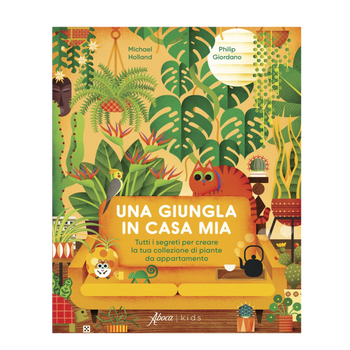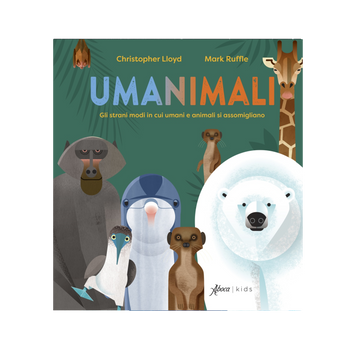You have no items in your shopping cart.
Minimi giganti Minimi giganti
La vita segreta delle formiche La vita segreta delle formiche
Susanne Foitzik - Olaf Fritsche Susanne Foitzik - Olaf Fritsche
€22,00
A book that is fundamental in learning about the world of ants and those who study them. An incredible subterranean journey that will make us see these insects in a completely new light.
A book that is fundamental in learning about the world of ants and those who study them. An incredible subterranean journey that will make us see these insects in a completely new light.
Availability:
In Stock
Sku: LIBMINIMI
ISBN/EAN: 9788855230759
Its authors are two of the most respected experts in the field of biology: Susanne Foitzik is a global authority on ant studies and Olaf Fritsche has published countless articles on the latest scientific research, as well as several medical papers.
Small but extremely efficient in their organisation of life in the nest, these creatures are among the most interesting and complex insects to study.
The structure of their societies and the division of labour are extremely similar to those of human beings, as is their ability to cooperate, maintain strict hierarchies and even devise shrewd strategies of defence and attack - not to mention forms of exploitation and enslavement of other insects or ants under their control.
They garden and cultivate mushrooms; they keep aphids as working animals, which they protect from thieves. They build warehouses and move from one dwelling to another. They develop defences against pathogens, including vaccines. Many of their colonies are the size of an acorn, but some are thousands of kilometres long. In peacetime, they carry out their tasks according to the division of labour. Every ant has its role: from nurses to architects, workers to rulers, hunters to gatherers. But even in their world, peace is not permanent. Neighbours argue over territorial boundaries and start fierce wars among themselves. Entire empires rise and fall. It is exactly like our human world. A book that brings together many interesting insights from extensive scientific research - and not only that: it also reveals how researchers manage to carry out such incredibly accurate studies of such small animals.
The book also features 50 photographs, making this a unique work.
Susanne Foitzik is an evolutionary biologist. Her doctorate focused on the evolution and behaviour of ants. After studying in the USA, she returned to Germany where she teaches at the Johannes Gutenberg University in Mainz. The results of her work have been published in over a hundred scientific articles.
Olaf Fritsche is a biophysicist. After his doctorate in Biology, he turned to writing, reporting on the latest scientific research. He is also the author of several academic texts on biology and medicine.
Its authors are two of the most respected experts in the field of biology: Susanne Foitzik is a global authority on ant studies and Olaf Fritsche has published countless articles on the latest scientific research, as well as several medical papers.
Small but extremely efficient in their organisation of life in the nest, these creatures are among the most interesting and complex insects to study.
The structure of their societies and the division of labour are extremely similar to those of human beings, as is their ability to cooperate, maintain strict hierarchies and even devise shrewd strategies of defence and attack - not to mention forms of exploitation and enslavement of other insects or ants under their control.
They garden and cultivate mushrooms; they keep aphids as working animals, which they protect from thieves. They build warehouses and move from one dwelling to another. They develop defences against pathogens, including vaccines. Many of their colonies are the size of an acorn, but some are thousands of kilometres long. In peacetime, they carry out their tasks according to the division of labour. Every ant has its role: from nurses to architects, workers to rulers, hunters to gatherers. But even in their world, peace is not permanent. Neighbours argue over territorial boundaries and start fierce wars among themselves. Entire empires rise and fall. It is exactly like our human world. A book that brings together many interesting insights from extensive scientific research - and not only that: it also reveals how researchers manage to carry out such incredibly accurate studies of such small animals.
The book also features 50 photographs, making this a unique work.
Susanne Foitzik is an evolutionary biologist. Her doctorate focused on the evolution and behaviour of ants. After studying in the USA, she returned to Germany where she teaches at the Johannes Gutenberg University in Mainz. The results of her work have been published in over a hundred scientific articles.
Olaf Fritsche is a biophysicist. After his doctorate in Biology, he turned to writing, reporting on the latest scientific research. He is also the author of several academic texts on biology and medicine.
Release date 2020
Dimensions cm 15 x 22,5
Pages 320
Release date 2020
Dimensions cm 15 x 22,5
Pages 320












